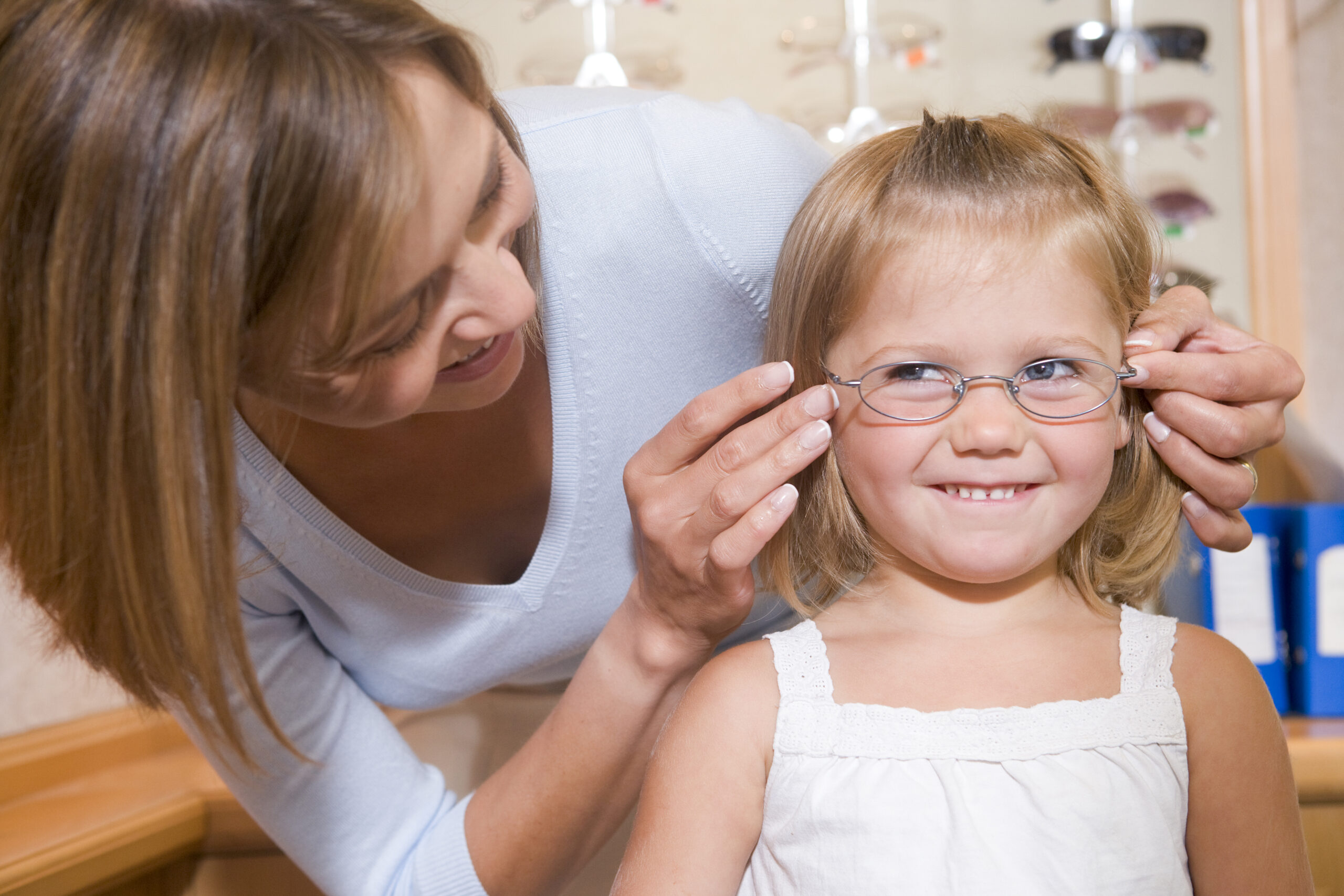Home » How to Help Your Child Adjust to Their First Pair of Glasses
Good vision is essential for a child’s development, academic performance, and confidence. Many children experience vision problems but may not be able to express their struggles clearly. Regular eye exams are crucial for maintaining good eye health and detecting potential vision problems early on. Your vision is invaluable, and taking the necessary steps to protect it is essential. We understand that some patients may feel anxious about their eye exam. So we’ve provided this overview of the benefits of an eye exam, along with an explanation of the experience. Good vision is essential for a child’s development, academic performance, and confidence. Many children experience vision problems but may not be able to express their struggles clearly. Regular eye exams are crucial in detecting issues early and ensuring that your child receives the vision correction they need. Poor vision can lead to difficulties in learning, headaches, and even behavioral issues due to frustration. For many kids, receiving their first pair of glasses is an exciting moment, but it can also come with some hesitation. Helping your child adjust involves more than just making sure they wear their glasses—it’s about making them feel comfortable, confident, and responsible for their eyewear.

One of the biggest concerns children have when getting glasses is how they will look. Kids want to fit in with their peers and feel good about their appearance. The right frames can make a significant difference in how excited they are to wear their glasses every day.
Allowing your child to have a say in selecting their frames helps them feel more in control and excited about wearing glasses. Consider these factors when choosing frames:
Encouraging them to try on different options and see how they look in a mirror can help them feel more engaged in the process.
A major part of adjusting to glasses is learning how to take care of them. Kids need guidance on handling their eyewear properly to avoid frequent replacements or damage.
Making these habits second nature helps extend the lifespan of their glasses and reduces frustration.
A good fit is crucial for comfort and effectiveness. If glasses don’t fit properly, kids may resist wearing them or frequently take them off. The right fit prevents discomfort, headaches, and slipping during active play.
Optical professionals can adjust frames to ensure they fit snugly without being too tight. If your child complains about discomfort, it’s important to have their glasses refitted.
Some children feel self-conscious about wearing glasses, especially if they are the first in their class to get them. Positive reinforcement and encouragement can help them embrace their new look.
Some children may struggle with wearing their glasses consistently. It takes time for their eyes to adjust, and they might forget or feel uncomfortable at first.
Adjusting to new glasses takes time, and some kids may experience mild discomfort, eye strain, or headaches in the beginning. This usually resolves within a few weeks. If they continue to experience discomfort or blurry vision, a follow-up appointment may be needed to ensure the prescription is correct.
Children should have their eyes checked regularly, even if they don’t currently wear glasses. Many vision problems develop over time, and early detection is key to preventing further complications.
Regular checkups ensure that prescriptions stay up-to-date and that any new vision problems are caught early.
The key to helping your child adjust to glasses is making the experience as positive as possible. By choosing the right frames, teaching proper care, ensuring a good fit, and offering encouragement, you can help your child embrace their glasses with confidence.
At Tennessee Eye Care, we understand how important it is to find the perfect pair of glasses for your child. Our team is here to provide expert fittings, stylish and durable frames, and comprehensive eye exams to ensure your child’s vision stays sharp. Schedule an appointment today and let us help your child see the world clearly!